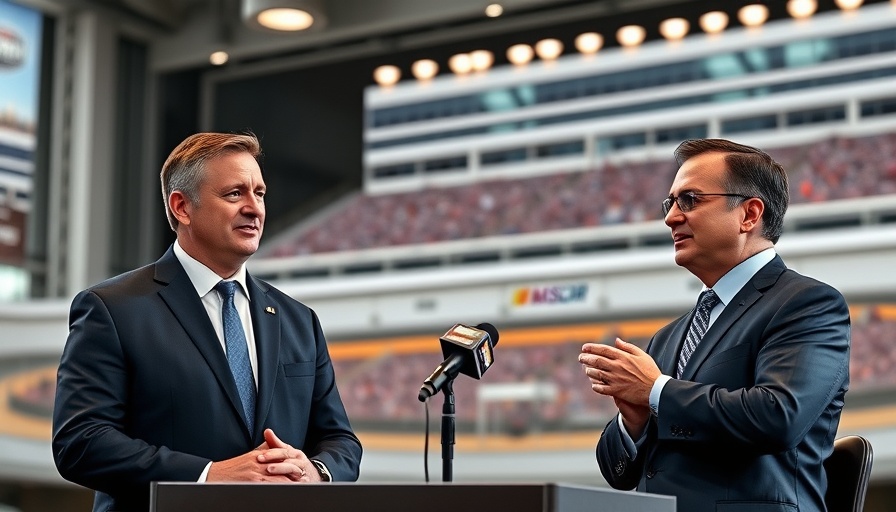
NASCAR Reaches New Heights with Major Leadership Changes
In an unprecedented move for the National Association for Stock Car Auto Racing (NASCAR), executives Jim France and Lesa France have announced a pivotal leadership reshuffle that is poised to redefine the future of the sport. With Steve Phelps stepping into the newly minted position of commissioner, NASCAR takes a bold step toward amplifying its global presence. This progressive change marks a key moment in NASCAR's evolution, emphasizing the sport's commitment to innovation and growth.
The Significance of Steve Phelps’ Promotion
Steve Phelps, who has been a significant figure in NASCAR since 2018, has been instrumental in driving the sport's recent growth trajectory. As he transitions from president to commissioner, Phelps gains greater authority in shaping the strategic direction of the organization. He will now oversee NASCAR’s global expansion, a nod to the increasing globalization of sports entertainment.
Jim France, NASCAR's chairman and CEO, highlighted the paramount importance of the race fan as the sport’s most vital stakeholder. In his words, “Few leaders understand that more than Steve Phelps and Steve O’Donnell.” This underscores a dual commitment to fandom engagement and organizational growth—two pillars necessary for NASCAR’s bright future.
Future Predictions: NASCAR's Global Aspirations
The elevation of Phelps and O'Donnell comes at a time when international interest in NASCAR is on the rise. With Phelps’ vision, NASCAR is aiming not just for dominance stateside but also in markets abroad. The global expansion strategy is expected to include new revenue streams and partnerships that enhance the sport’s visibility. Prominent figures within the racing community, such as Robby Benton, have already hinted at increased activity in international markets, signifying a shift in where NASCAR's priorities lie.
Expanded Roles: A Dynamic Leadership Team
Alongside Phelps’ new role, Steve O’Donnell has been promoted to president, with an accent on competitions and operations. O'Donnell's ability to navigate complex racing dynamics has been recognized across the industry; he is known for his hands-on approach to leadership. With these adjustments, NASCAR is not merely changing titles but elevating its operational efficacy. John Probst, who oversees competition, will also see an expansion of his responsibilities, enhancing NASCAR’s focus on innovation and collaboration with original equipment manufacturers (OEMs).
Engagement and Innovation: Driving NASCAR's Future
What does this mean for NASCAR fans? Continued association with Phelps suggests that race weekends will still see familiar faces and strong leadership. His commitment to fan engagement will likely foster new initiatives aimed at deepening connections with supporters, thus ensuring that NASCAR not only retains its current fan base but expands it. Innovation will take center stage; expect fresh ideas that challenge the traditional norms of car racing and event management.
The Road Ahead: Challenges and Opportunities
Importantly, this transition comes with its challenges. The leadership's ability to navigate current trends in sports viewership, fan engagement, and sponsorship will determine the degree of success for NASCAR’s latest initiatives. Additionally, balancing tradition with change will be crucial as the sport attempts to attract younger audiences while maintaining its legacy. The stakes are high, but with visionary leaders at the helm, NASCAR appears equipped to meet these challenges head-on.
Conclusion: Embrace the Change
This historic organization reshuffle in NASCAR signals not only a shift in leadership but also a transformation in how the sport views its potential for growth. As fans, embracing these changes offers an opportunity to engage with NASCAR in an entirely new light. Keep an eye out for upcoming races and initiatives that reflect this bold new chapter in NASCAR's storied history.
 Add Row
Add Row  Add
Add 




Write A Comment